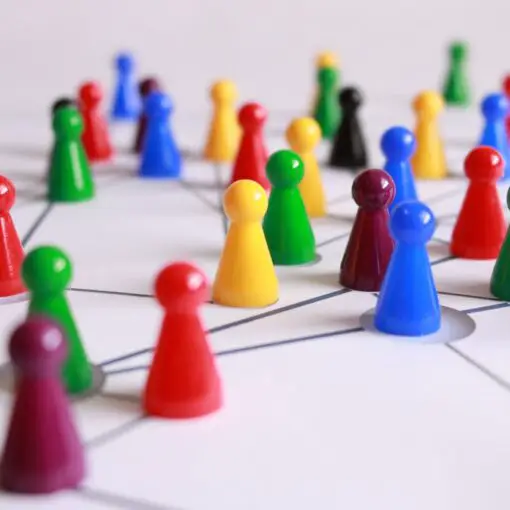Have you ever wondered about critical thinking and decision making, and how these two concepts link to represent a common process of thought and action? Critical thinking is a key aspect of making good decisions, but it’s all too often ignored!
Critical thinking is the ability to assess situations rationally and objectively, and it’s usually the first step toward making a good decision – at least for many individuals. However, it sometimes gets forgotten, because when you’re emotional, you tend to make decisions based on feelings instead of rationality.
In this article, we’ll explore the relationship between critical thinking and decision making, and come to understand why critical thinking should always be a part of making a decision, and what happens when this goes wrong.
Do You Need Critical Thinking For Decision Making?
Technically speaking, critical thinking is not a prerequisite to making a decision, but it is very often a prerequisite to making a good decision. Critical thinking involves a careful assessment of your current situation and the reality around you before you take any action. It does not involve emotion or biased judgments; it is impartial and based on rationality.
A critical thinking view might be, “My workplace requires long hours.”
A non-critical thinking view might be, “My workplace is bad because it requires long hours.”
In the second example, your feelings about work are coloring your assessment of the objective reality, which can make it harder to make a good decision. Obviously, this is a simplified version of critical thinking, but it should give you some idea of why it has so much importance in the decision making process.
To make a good decision, you must be in touch with reality. You must be keenly aware of the current situation so that you can identify the available options, and assess how likely those options are to have a good result. If you skip over the critical thinking step, which is what puts you in touch with reality, you can’t accurately assess your options or ensure that they result in a positive outcome.
Critical thinking is the methodical gathering of information, which you analyze and evaluate. Without this, your decision making cannot be based on reality, and your decisions are therefore much less likely to have a positive outcome. If you don’t stop to assess your situation, how can you possibly decide on the best course of action?
How Can You Use Critical Thinking To Make Good Decisions?
Let’s look at an example of critical thinking in the decision making process.
You are dealing with a friend who is upset about something you said. You are feeling defensive and angry, but instead of acting on those emotions, you stop to think about the situation. You assess what you said objectively, without any sense of “but I only meant X” or “well, it was his fault.” You come to the conclusion that what you said was hurtful and unnecessary.
You are now in a position to make a decision about your actions that is based on the reality of the situation. Your friend is upset, what you said was wrong, and you need to speak to them. Your decision is likely to point you toward apologizing or making amends in some other way – which will resolve the situation with the best possible outcome.
If you skip the assessment part of this process (the critical thinking part), you are unlikely to conclude that an apology is the best solution. Instead, feeling angry, you might lash out at your friend and say something even worse.
By accurately analyzing the situation, you are much better placed to recognize what your options are and make a choice about the best one. In many cases, this will lead to a positive outcome. Even if it doesn’t, you will know that your decision was based on a rational examination of the situation and a logical thought process.
Many people view critical thinking as the groundwork for making decisions. It’s the point at which you look around for the metaphorical signposts and directional arrows that tell you where you are now – and then you can decide which way to go.
Can You Improve Your Critical Thinking?
Humans spend a lot of time thinking critically, usually without being aware of it at all. Whenever you are presented with a problem, even a minor one, you employ the same pattern of behavior: you assess the situation, you analyze your options, and you select the best option for the current situation.
You won’t get it right all the time, but your approach allows you to maximize your chances of good results. However, a lot of the time, people don’t use their critical thinking skills as much as they could, and this can lead to less-than-optimal results.
So, can you improve your critical thinking? The answer is that yes, you can – but it takes practice. You need to learn how to ask the right questions when you are presented with a problem, and there are some key steps you can take to hone this skill.
These include things like:
- Asking deeper and more thorough questions
- Evaluating your perspective of the situation
- Looking for objective evidence
- Not making snap judgments
- Not believing your own biases too readily
- Practicing active listening
- Gathering as much information as possible
- Learning to spot biased information and fake news
Avoiding sources of news that you know may be biased, such as social media or friends with an investment in the situation
Another important aspect of improving your critical thinking is to actively check that you are employing the skill whenever a situation demands it. It’s very easy to make decisions based on your intuition and emotions, and this can be a problem.
How Do Emotions Affect Critical Thinking And Decision Making?
Emotions have a surprisingly big impact on the decisions that we make. Very often, they prompt snap reactions that don’t result in the outcome we want. You can probably think of examples of instances where you have done something that you later regretted because you were feeling angry or upset about something.
This is because strong emotions can actually reduce your ability to think critically. The emotions are controlled by a part of the brain called the amygdala. When this part of the brain goes into overdrive, it prevents the prefrontal cortex, which is responsible for rationalization, from working properly.
That means that when you’re feeling emotional, your ability to make decisions based on rationality and logic is actually impaired. Being aware of this is key to counteracting it. If you are able to take a deep breath and allow your emotions to fade a little before you react to the situation, you will make more space for critical thinking.
This will help you to make better decisions, reducing the risk of damaging snap reactions and negative outcomes.
Conclusion
Critical thinking and decision making are very closely linked, and you engage in critical thinking every time you make a decision. If you are not using your critical thinking skills very much, there’s a high risk that you will make bad decisions, because you won’t be making them based on the reality of the situation.
References
https://www.mindtools.com/a3ixqae/critical-thinking
https://edu.gcfglobal.org/en/problem-solving-and-decision-making/what-is-critical-thinking/1/
https://www.discoverbusiness.us/resources/problem-solving/
https://www.unilodge.com.au/blog/how-to-develop-critical-thinking
https://www.forbes.com/sites/bernardmarr/2022/08/05/13-easy-steps-to-improve-your-critical-thinking-skills/





